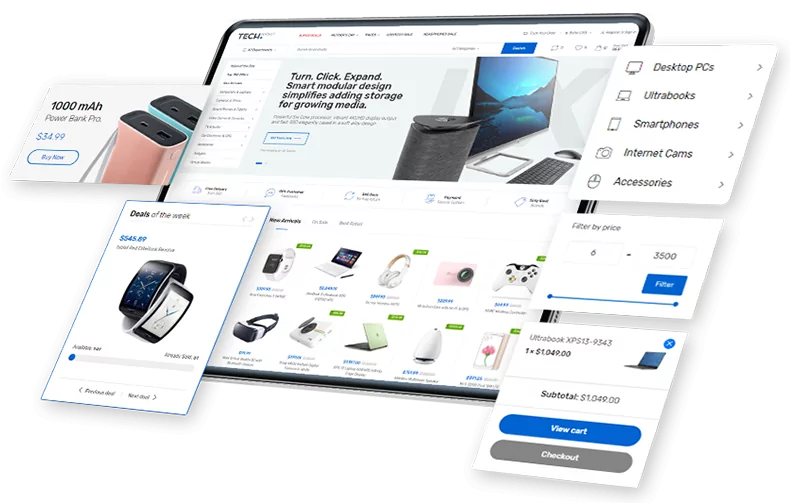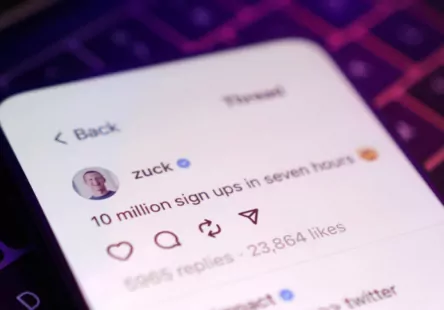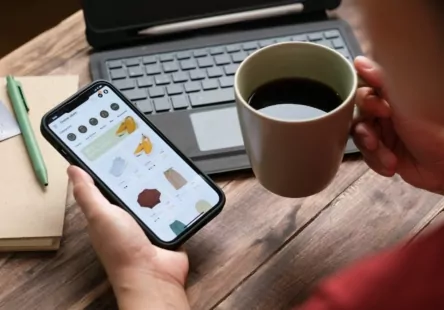Tabla de contenido
[zoomsounds id=”9-link-building-strategies-to-help-online-stores-rank-higher”]
Optimizing a business website for maximum traffic and conversions does not happen overnight. SEO might seem straightforward on paper, but, it is a continuous and careful undertaking. As Google keeps updating its algorithm and guidelines, on-site SEO modifications are simply not enough. Businesses need robust link-building strategies to survive.
The process of building links itself covers a lot of grounds and offers great room for creative and flexible approaches. But without it, making your online store a household name is a battle you likely won’t win. As the competition surges, companies and enterprises have to be more intuitive in their off-page SEO tactics.
How to Approach Link-Building Strategies?
Choosing the best content and backlinks to promote on external pages is a key step in link-building for businesses and e-stores. Another aspect involves finding platforms that are reliable and experience healthy user engagement but aren’t crowded with traffic so that your campaign is nowhere to be seen.
While these two steps are the main preliminary considerations, your link-building strategy at large must have a structure according to your needs and target market. While specific might differ, most experts would agree on a few helpful approaches that you can capitalize on.
1. Guest Blogs
While content creation is not the main focus of most online stores, a link-building strategy commonly features strengthening online presence through guest posting. This staple of SEO is a highly recommended, if slightly overdone, tactic which might require a little bit of research to know how to go about it.
The great thing about this step is the level of marketing opportunities it provides. While stores themselves cannot feature links to their services, even if they have a blog section of their own, using other sites to promote themselves makes it easier to gain organic impressions.
Blogging and news sites are everywhere on the web and frequently promote articles to a wide range of audiences. While many of them cater to general market trends, some of them specialize in areas like fashion, entertainment, accessories, food, technology, science, sport, e-commerce, and other areas.
By honing your ability to seek the best sites, you can opt for a laser-focused link-building campaign where you can provide quality links guaranteed to garner more traffic. As for the content, you can dedicate posts or articles to buying guides, pros and cons assessments, myth-busting, dos and don’ts lists, and smart commercial practices for businesses and consumers.
Being a part of off-page SEO, you need to craft this content in a way that doesn’t look like a sales pitch. The purpose of these websites is to provide information and insight to readers. With that in mind, your best bet here is to have your business or store mentioned in a fleeting way without much emphasis on marketing.
Instead, your job is to design a smart link-building strategy with robust content in the form of digital pamphlets, infographics, and additional backlinks from sites that offer relevant information without referring to your store. This way, you can ensure that your responses are organically driven.
If you’re already directly or indirectly engaging in blogging, this scheme is ideal as your groundwork is already laid. All you need to do is choose the best links and forward them to the right platforms for linking.
2. Use Tactical Internal Links
This is another mainstay of most comprehensive off-site SEO practices. This step is to ensure that more and more users will flock to your store’s web pages and all the information and services featured on them. By diversifying your off-page portfolio of URLs and redirects, your link-building strategy ensures lasting and freshly-sourced impressions.
As the impressions translate to more visits, which in turn lead to a higher conversion rate, your website logs these interactions as part of your stats. Search engine crawlers look at these analytics and select websites for indexing accordingly, with websites that took advantage of strategic internal linking getting the best SERP positions.
Online stores with sitemaps are also in a beneficial position for indexing as the links that are spread across websites are easy to navigate for users, which Google also finds impressive and worth rewarding.
3. Recruit Fellow Bloggers
The internet is practically swimming with blogging enthusiasts and reviewers that are sharing their variously qualified thoughts on different products and services. Using their influence and skills opens a great opportunity for online stores to have their products promoted through sound marketing.
By contacting third-party writers, you can send them samples of what you’re hoping to sell, which they can give their thoughts on. While some writers opt for general content, many operate blogs around the internet that focus on particular categories of products like cooking, gardening, arts and crafts, audio hardware, and dozens of others.
Since you’re giving your product free of charge, you can ask them to give their critical, unbiased, and informed analysis. In return, the least they can do is add a link redirecting user to your e-store where the product in question is available for purchase.

While these blogs don’t necessarily get millions of visitors, many of them still enjoy a healthy and particular following. By having bloggers write on your behalf, their loyal and trusting followers can get to know more about your specific goods and why they might be great for them.
If these bloggers really like what you’re selling, they might even recommend these products and dedicate multiple articles to singing your praises. Even if they’re more critical, sending backlinks still allows your site the exposure needed to attract more accepting buyers.
This entire scheme guarantees an improved standing among potential consumers through third-party channels guaranteed to help you climb search results.
4. Other Sources and Sites
Bloggers are just one of the many media entities that can help get the word out about your service. Newspapers frequently feature content talking about products other than advertisements. This is a great way to boost organic impressions.
This technique works particularly well for bizarre or innovative products that were previously unheard of. Unique and pioneering goods offer a great PR campaign both on and offline, and what better way to exploit this method than through newsagents and high-profile campaigns?
The same link-building strategy applies here, where you can ask for impartial reviews based on product demos. Online newspapers and e-zines are great sources to feature stories or articles about innovative or underrated products at online stores. With the right links, their readers will also want to learn more about your service.
Although print newspapers and magazines aren’t as popular overall, many localities still rely on them as a source of information, particularly older demographics that can afford them and would perhaps appreciate your products as well.
With them, of course, you cannot share digital links. What you CAN do is ask the editor to feature a QR code that links back to your website. In a link-building strategy, you need to take your chances with any available medium in order to cover your bases.
5. Social Media Campaigns
According to WeLoveWeb, platforms like Facebook, Instagram, and other networking sites are increasingly being used by followers to seek, research, and purchase goods and services. So, having its products promoted there can help optimize your store’s link-building strategy.
While bloggers cater to a wider base and newspapers target older audiences, prominent social media accounts and influencers offer a great way to reach younger listeners in particular. And with these platforms, the possibilities are endless.
Stories and image posts are a great way to promote links through Instagram, Twitter, Pinterest, and other messaging and media sharing sites. From there, viewers can benefit from special offers and choose from variations based on their preferences.

On the other hand, video-based marketing through YouTube and Facebook accounts also offers a great chance for link building. Online personalities often engage with the public to give their thoughts on goods and share real-time experiences of using products through scheduled videos, live streaming, community polls, and various other channels.
Content like unboxing videos, reviews, product breakdowns, and tutorials are just some of the ways through which influencers associate products with a degree of intrigue and public appeal. If your product is up to the task, there is no reason why followers and subscribers wouldn’t want to know more.
Plus, YouTube uploads that focus on particular goods tend to do well on SERPs based on general or specific queries. By using and forwarding your links wisely, your SEO prospects will likely fare well here.

Online Store that sells!
Do you need a redesign or a new website for selling online?
Complete solution for retail and wholesale. Great UX/UI designers, experienced programmers and high emphasis on testing. If you are looking for a professional partner for your business in the online world, contact us!
6. Help Replace Broken Links
This is a more unorthodox approach to link-building strategy. But done right, it can be no less effective.
More often than not, websites feature dead or expired links to certain products or business pages. If they were from your competitor and have still not been taken care of, you can contact the site owner and provide them a link to your own website to a page featuring the same product, service, or piece of information.
You’re not necessarily replacing someone as you are offering an equal or superior alternative to an outdated product or one that is no longer on shelves. There are tools you can use to locate these dead links and reach out to websites with a new, perfectly functional, and click-worthy link.
This might not be for everyone, but if you’re able to offer a very unusual, even absurd product that is sure to draw attention – this is a great PR opportunity to attract more interest and links to your brand. You can also create shareable content around this product, like videos and blog posts, where you include links back to the product page.
7. Support from Brands
Stores that provide goods from different companies have a unique advantage that they can leverage as part of their link-building strategy. Many brands or manufacturers have their own pages where they feature details about retail. These pages are an important public resource and experience some traffic as well.

By contacting each brand that is using your store as a platform, you can have your backlinks added to those pages. This step isn’t necessarily a must, but it helps cover more ground and can add enough additional traffic to make the difference that earns you a higher SERP ranking.
8. Find Business Associates
While many companies and enterprises might share a section of the market, not all of them are competitors. For instance, clothing manufacturers often cater to audiences that have similar interests in related products like accessories, textile hardware, etc. Similarly, different food and beverage manufacturers often partner up for dual campaigns.
Based on this overlap, you can augment a link-building strategy for your store by outreach programs and exchange links pertinent to products or services that share a related (but not clashing) market appeal.
The possibilities offered by this approach are endless, especially for finding professional partners via LinkedIn. And the end result is a favorable set of backlinks for your SEO needs.
Let Professionals Help Your Business
Polishing and diversifying your link-building strategies certainly helps. But because there’s so much at stake, businesses often have to dedicate a lot of resources just for their SEO requirements.
But even online, not all store owners have the time, money, skills, or all of the above to either manage their own campaign or hire their own in-house team. Mastering SEO takes time and resources, and if you don’t have a system already, you might have to distract yourself from running your actual business.
To remedy this situation, online stores and business owners have the option to outsource their SEO needs to digital agencies.
They hire seasoned marketing experts and use helpful link-building tools and techniques who can help fulfill your goals and demands in little time and for an affordable fee. As solutions go, this one is nothing short of a win-win.
Hope This Was Helpful
Given the competition that they’re up against, the link-building strategy is no walk-in-the-park for online stores. But with the immense opportunities and global reach offered by the world wide web, creative and well-thought-out link-building strategies are worth getting into.
Promotional campaigns, partnerships, and out-of-the-box thinking are just some of the routes that business owners can take to weaponize backlinks. With them, conquering the market and attracting traffic, conversions, and Google’s attention becomes increasingly easier.
As we’ve learned, there are a few approaches that you can choose from. If you’re not quite sure yourself, a little consultation, plus everything that we have just touched upon, should offer a great start to all store owners.







